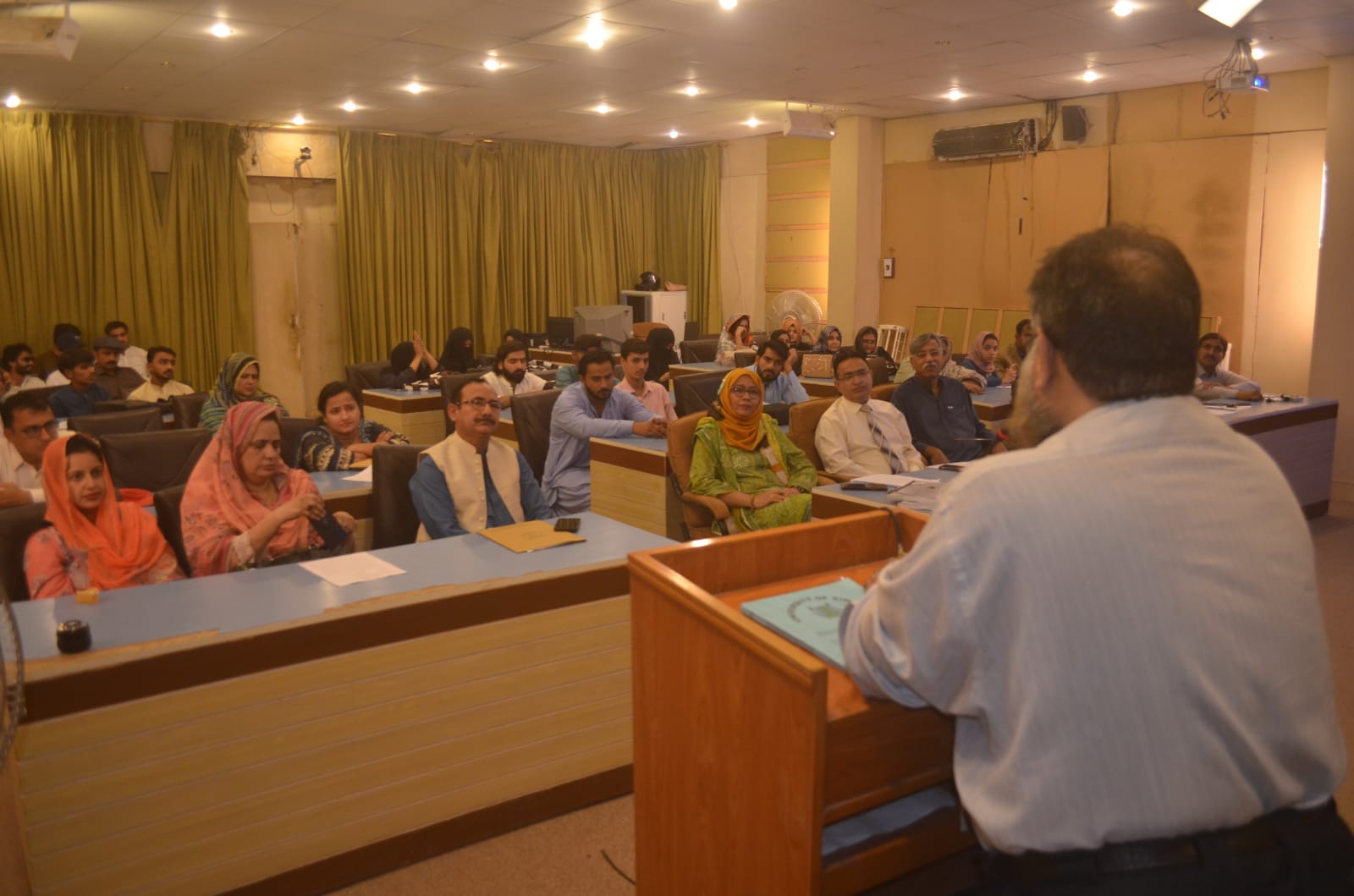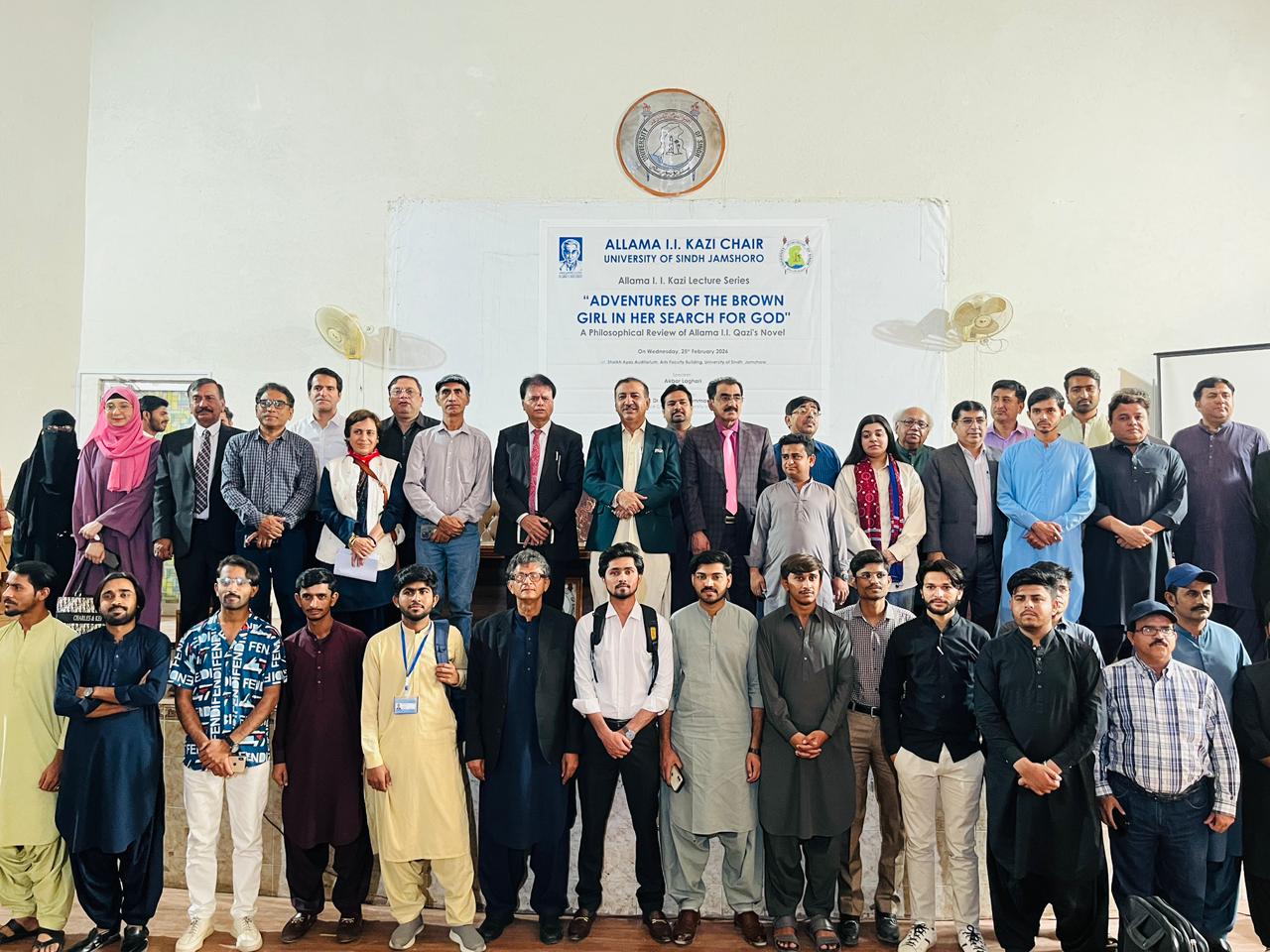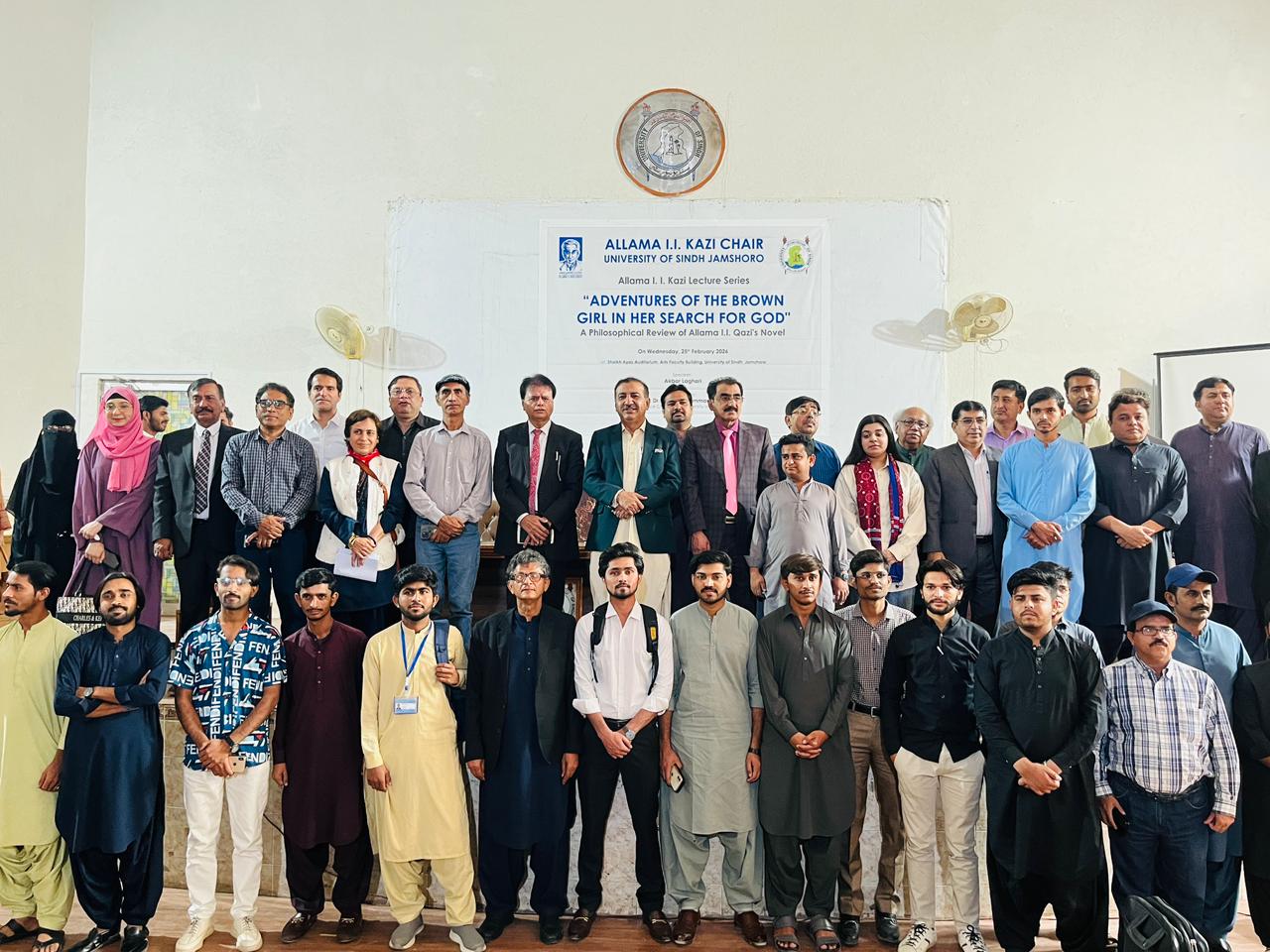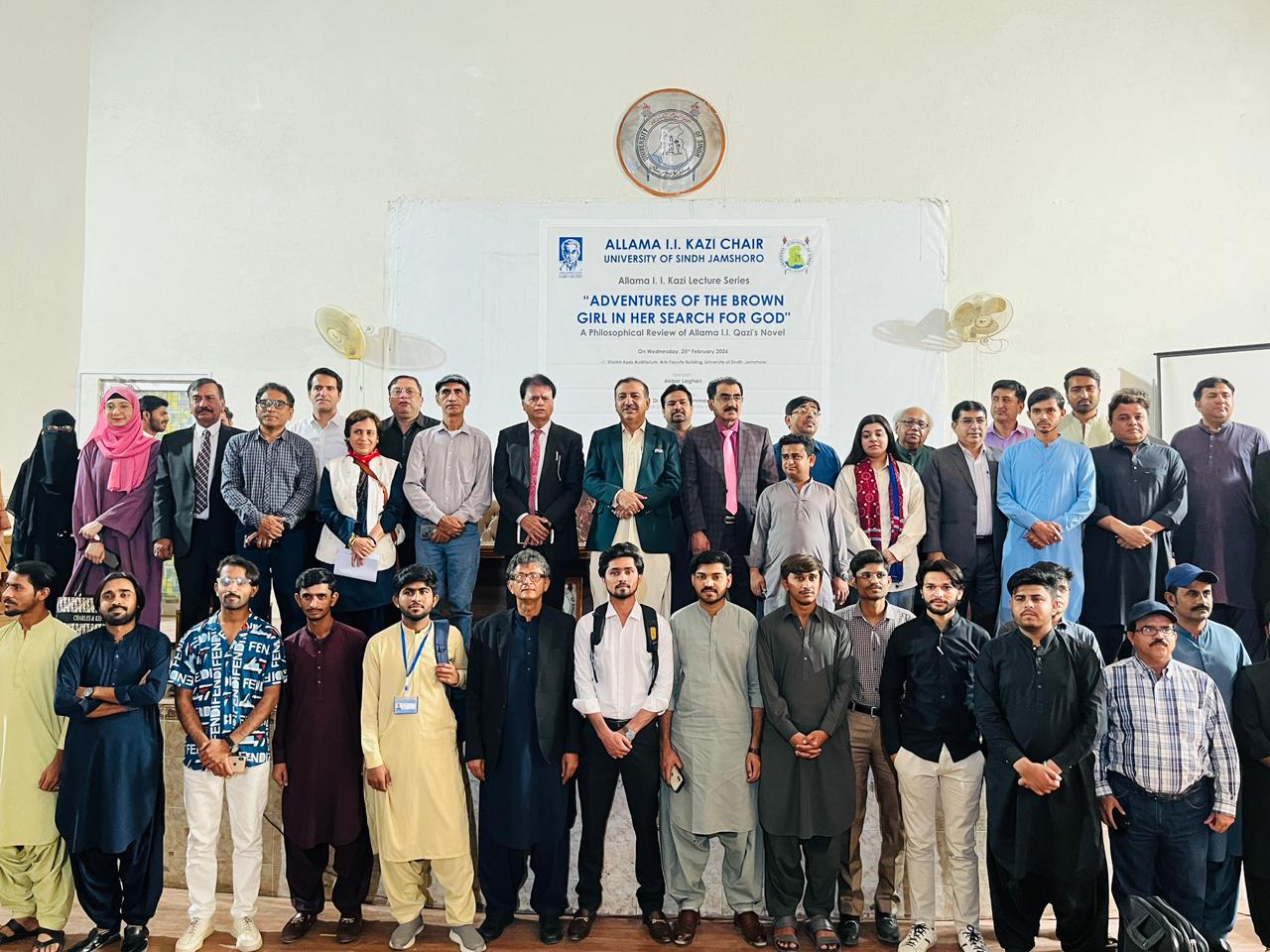
Call for safeguarding natural biodiversity of Kotri downstream, Indus Delta in face of climate conditions
Speakers at a seminar have said that the climate and weather conditions in Sindh are creating a highly vulnerable situation especially in the zone of Kotri downstream, which could result in drought across the province. Therefore, there is a stern need to safeguard the natural biodiversity of Kotri downstream and the Indus Delta.
They said if the conditions persist for some more years, the province will convert into a deserted land and vertebrate fauna and other aquatic and terrestrial life will be nipped in the bud.
This they said while addressing a one-day seminar titled "Climate Impact Assessment on Biodiversity of Indus River Kotri Downstream to Delta Region" was organized by the Department of Zoology, University of Sindh Jamshoro, which was held at the Dean Office’s Video Conference Room here on Wednesday. The seminar presided over by the Dean Faculty of Natural Sciences Prof Dr Agha Asad Noor on behalf of the Vice-Chancellor of University of Sindh, explored the critical challenges posed by climate change to the biodiversity hotspot of Kotri downstream.
Prof Dr Agha Asad Noor expressed that the dire situation of Indus could result in many calamities across the province, emphasizing the highly vulnerable conditions precipitated by climate and weather shifts in Sindh province, particularly in the Kotri downstream zone.
He urged authorities concerned to understand the grave concern of the researchers over the matter and take its notice to protect Kotri downstream and the delta. He warned of an impending desertification scenario if conditions persisted for some more years.
Adding depth to the discussion, Dr Ghulam Sarwar Ghachal highlighted the shrinking vertebrate fauna and the devastating impact of extreme droughts and floods on wildlife habitats. He advocated for the declaration of Indus River Kotri downstream as a protected and sustainable ecological zone, emphasizing the necessity of adequate water supply for its preservation.
Director of the Centre for Coastal and Deltaic Studies Dr Mukhtar Ahmed Mahar underscored the vital role of freshwater influx into Kotri downstream for sustaining both aquatic and terrestrial life. He emphasized the urgent need for collaborative efforts among research scholars, civil society and concerned departments to safeguard the natural biodiversity of Kotri downstream and the Indus Delta.
Chairperson, Department of Zoology, University of Sindh Prof Dr Naheed Kaka urged research scholars to focus on applied research that directly benefits natural biodiversity. She emphasized the crucial role of maintaining natural food chains and ecological balance to mitigate atmospheric disasters.
Chairman, Department of Zoology, GC University Hyderabad Prof Dr Manan Sheikh shed light on the current challenges posed by floods, rains and droughts in the Indus Delta eco-region. He stressed the pivotal role of academic research in providing tangible results for fauna and flora conservation, guiding future policies and plans.
After the event, a final PhD seminar of the scholar Dhani Bux Mashori conducted, wherein he presented compelling findings from his doctorate thesis, highlighting the degradation of water quality in the Indus River due to decayed plants, eutrophication and toxic algal blooms.
He emphasized how these factors disrupt the natural ecosystem, leading to adverse impacts on wildlife and plant survival.
The seminar attended by a large number of faculty members, research scholars, civil society representatives, government officials and NGO stakeholders, echoed a resounding call to action. It emphasized the immediate need for collaborative efforts and sustainable practices to preserve the rich biodiversity of Kotri downstream and the delicate balance of the Indus Delta ecosystem in the face of escalating climate challenges.


